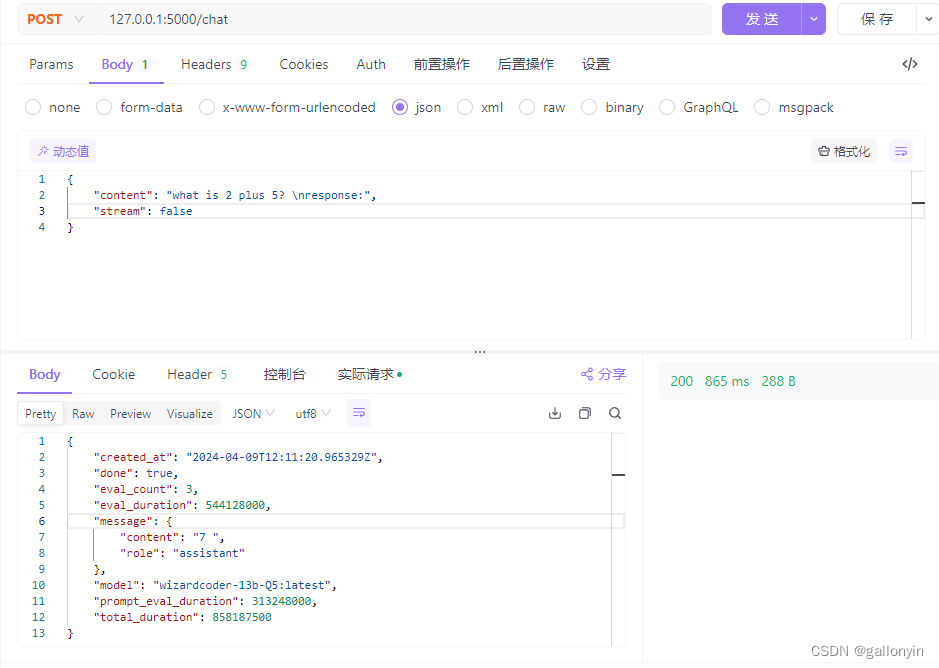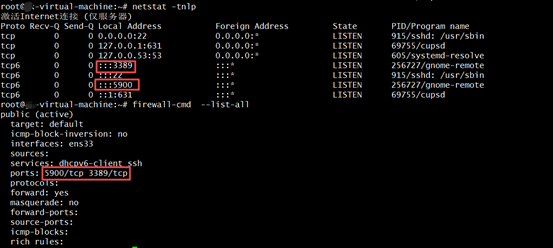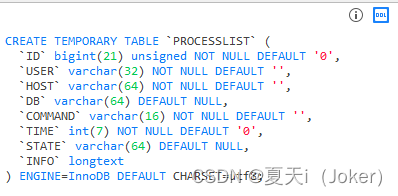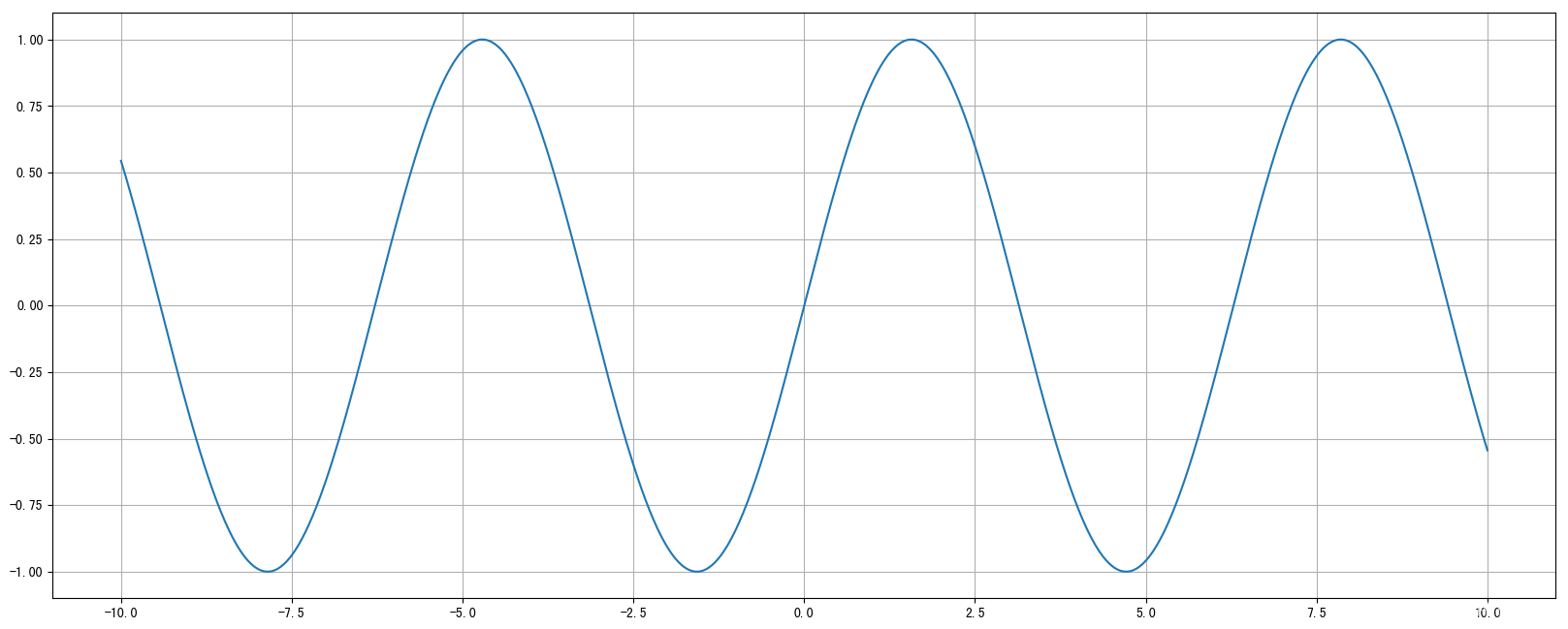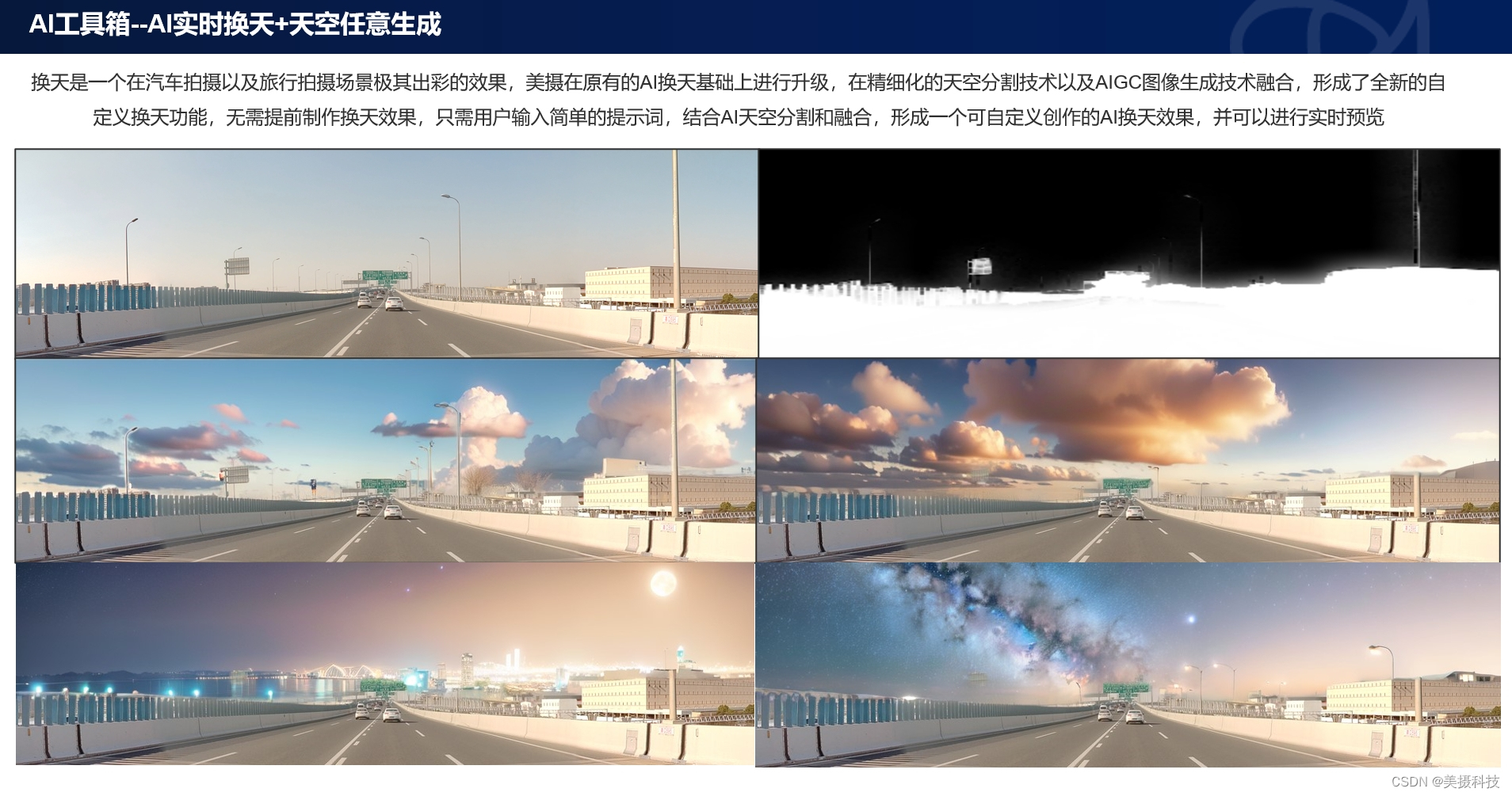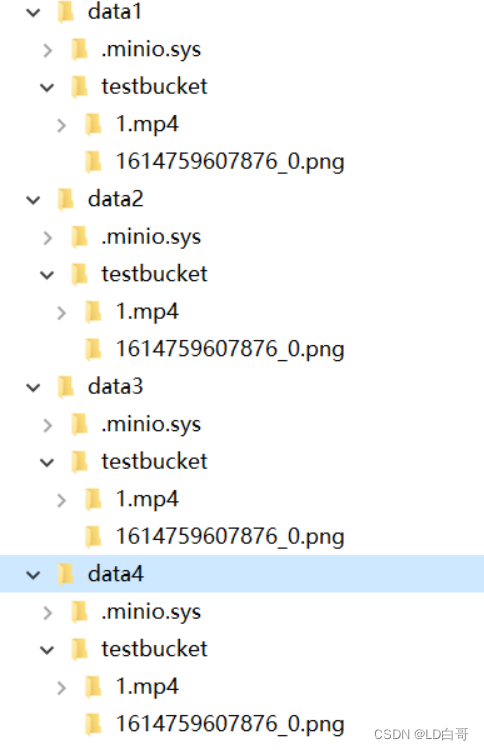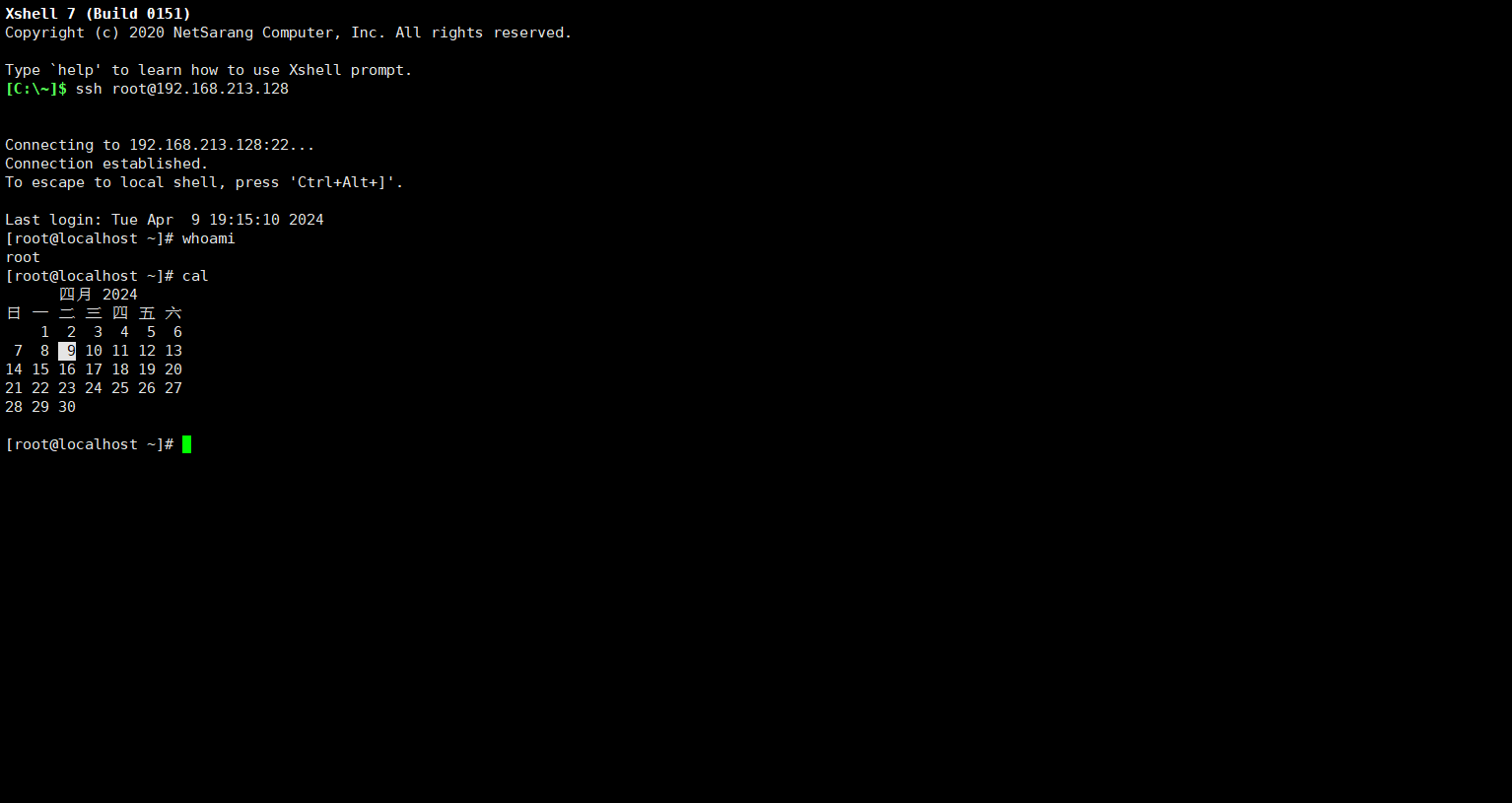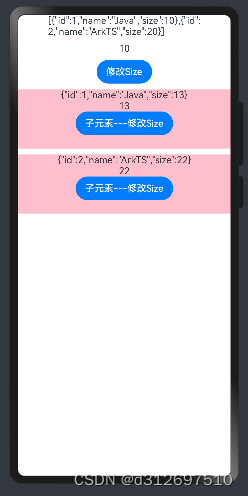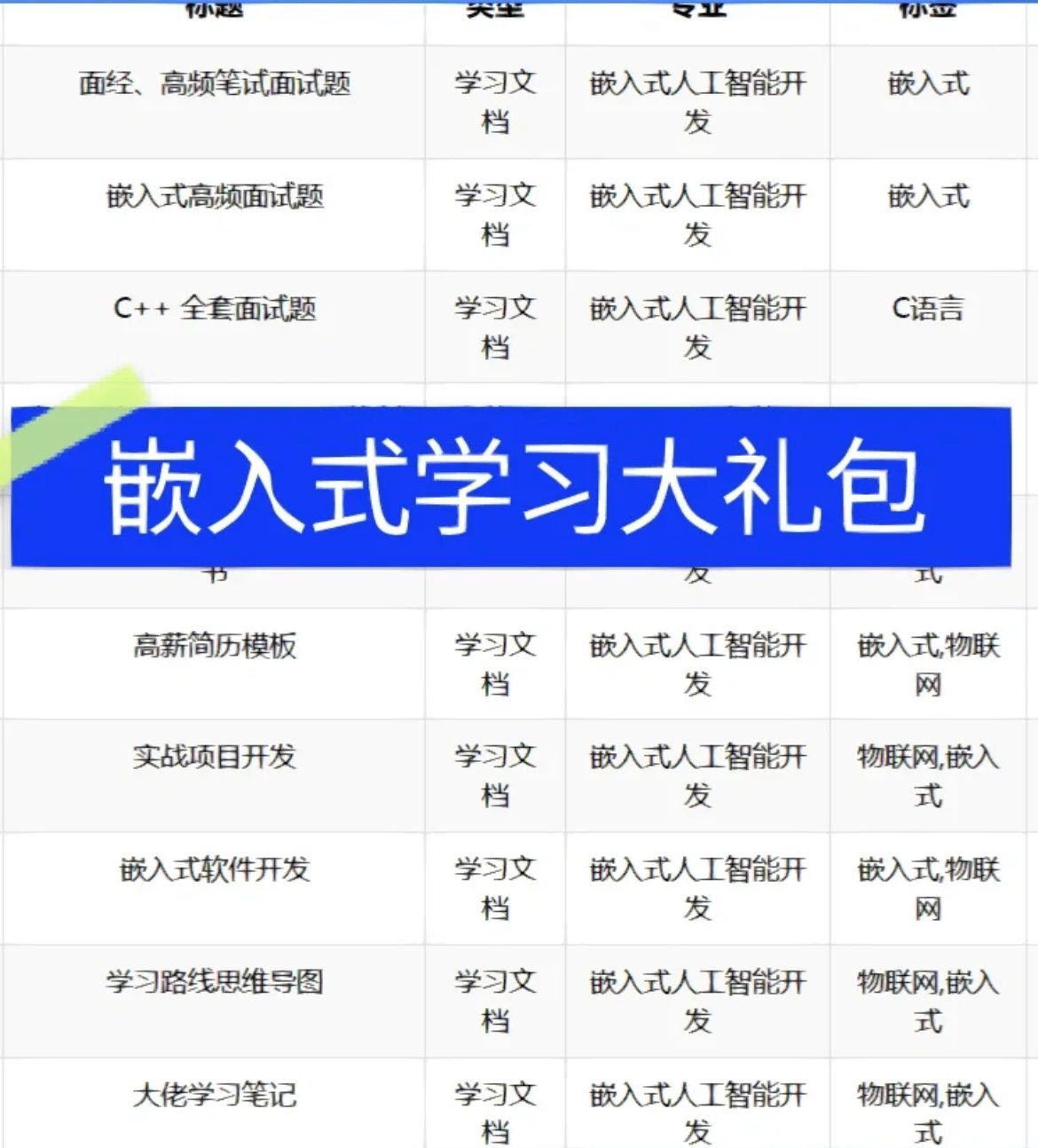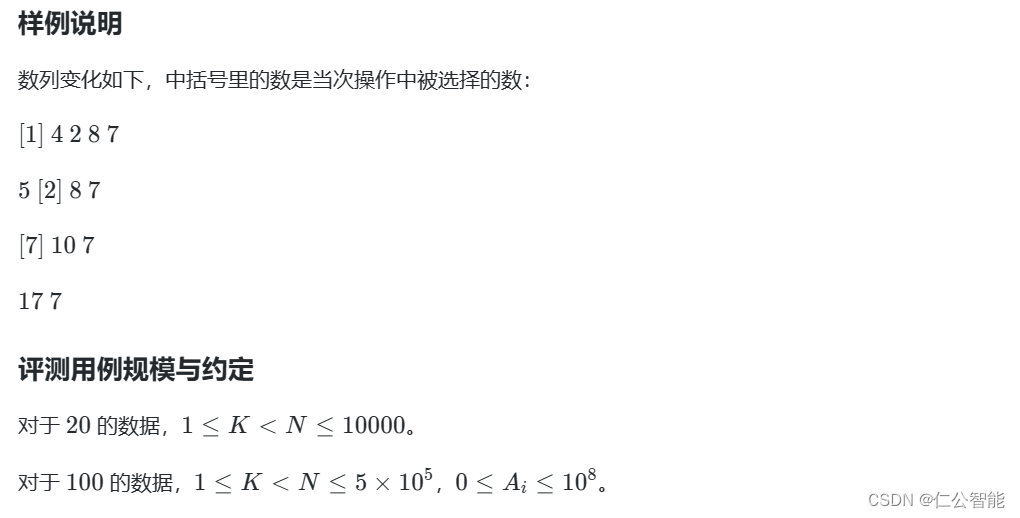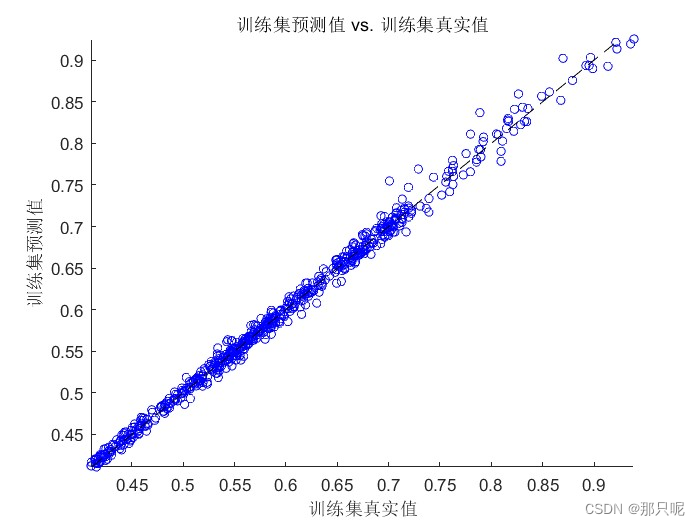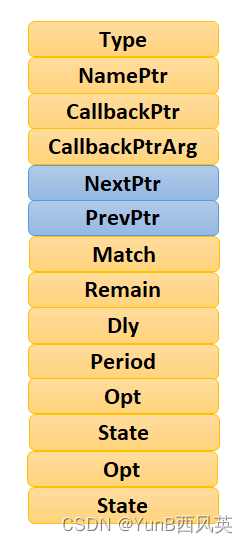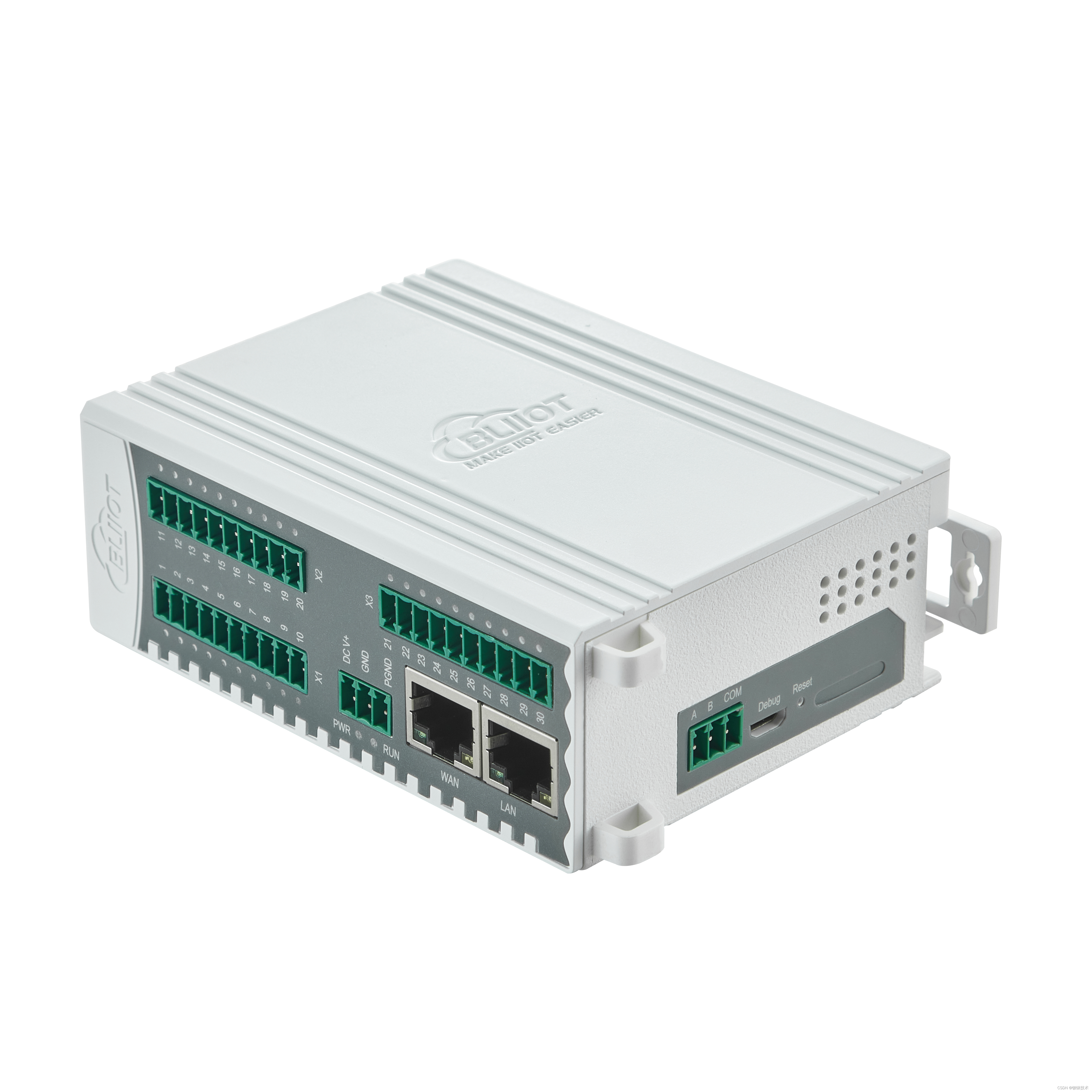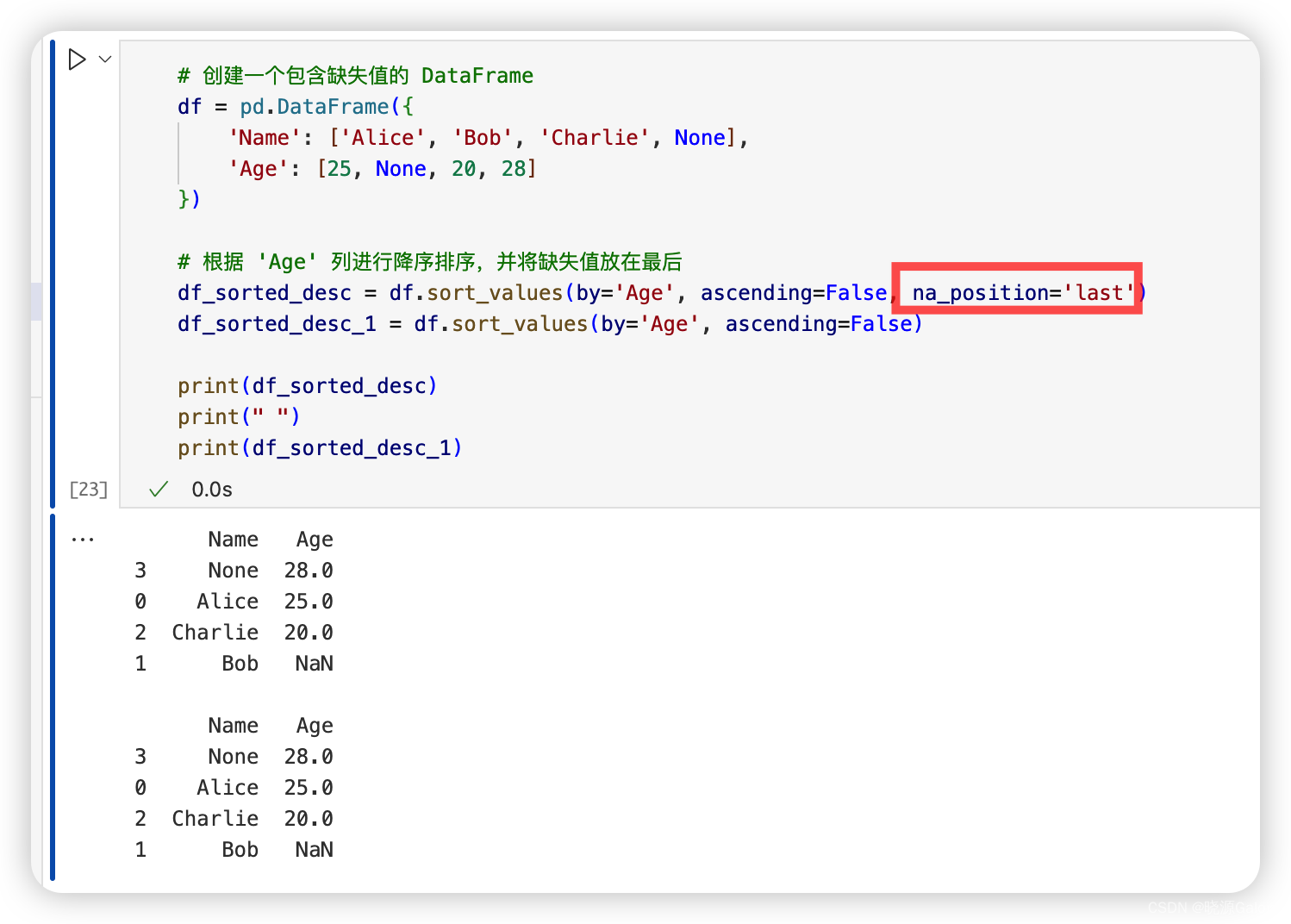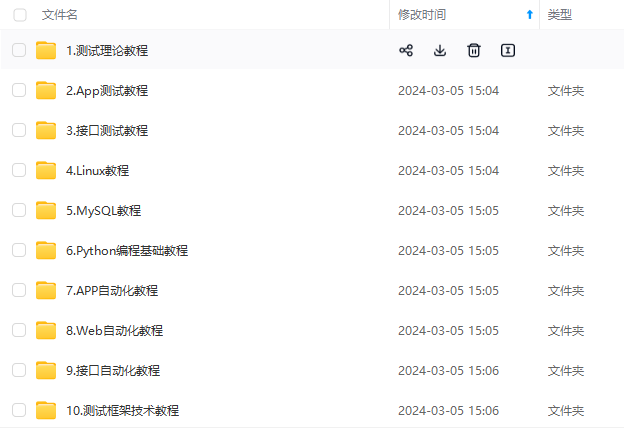前言
本文先以Windows电脑运行为例,Linux同理
本案运行配置:
Win11/CPU i5/RAM 32G (实际运行使用约占用10G)
假设你已经下载好了需要的xxx.gguf模型文件,本案:
wizardcoder-python-13b-v1.0.Q5_K_M.gguf
下载地址:https://huggingface.co/TheBloke/WizardCoder-Python-13B-V1.0-GGUF
一、安装ollama
- ollama官方GitHub下载安装包:
https://github.com/ollama/ollama/releases/tag/v0.1.31
下载 OllamaSetup.exe 和 ollama-windows-amd64.exe - 安装 OllamaSetup.exe,运行点击即可完成
二、创建ollama模型
在 wizardcoder-python-13b-v1.0.Q5_K_M.gguf 同目录下创建Modelfile.txt文件
本案模型地址:D:\develop\model\wizardcoder-python-13b\wizardcoder-python-13b-v1.0.Q5_K_M.gguf
创建文件:D:\develop\model\wizardcoder-python-13b\Modelfile.txt
Modelfile.txt 内容如下(仅一行)
FROM D:\develop\model\wizardcoder-python-13b\wizardcoder-python-13b-v1.0.Q5_K_M.gguf
进入ollama-windows-amd64.exe所在目录,命令行打开终端cmd
运行如下命令
ollama-windows-amd64.exe create wizardcoder-13b-Q5 -f D:\develop\model\wizardcoder-python-13b\Modelfile.txt
create 后面紧跟的一个参数是创建模型名称,可以自定义
三、运行模型
# 使用python3.10 清华源安装ollama
pip install ollama -i https://pypi.tuna.tsinghua.edu.cn/simple
python 代码如下
import ollama
stream = ollama.chat(
model='wizardcoder-13b-Q5:latest',
messages=[{'role': 'user', 'content': 'what is 1 plus 1. show me python code. \nresponse:'}],
stream=True,
)
for chunk in stream:
print(chunk['message']['content'], end='', flush=True)
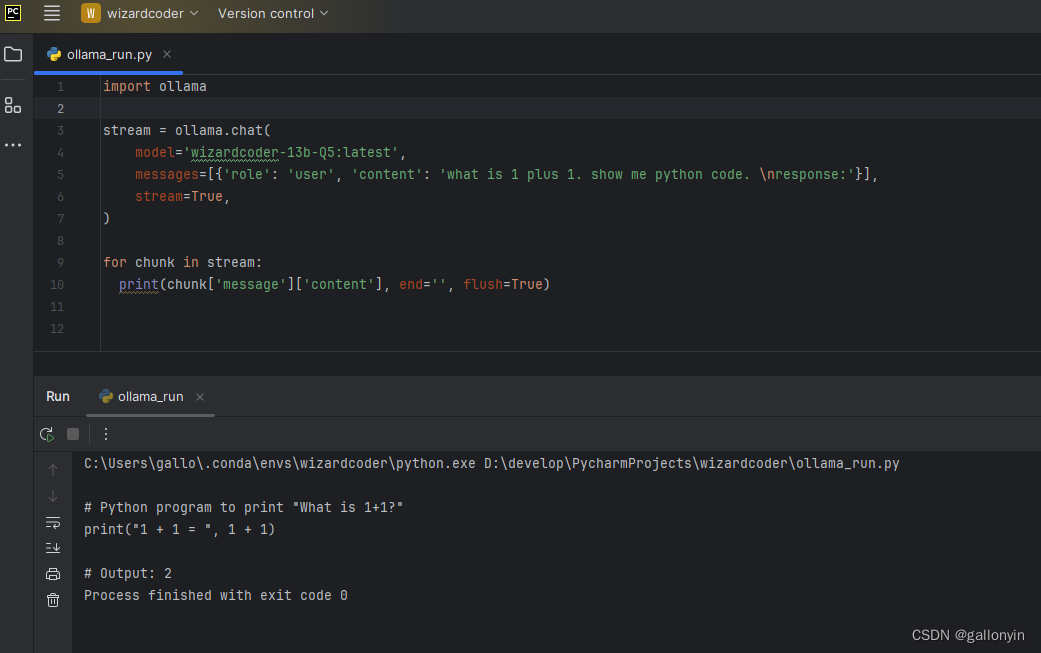
流式输出结果如上图,运行时 RAM 大约增加 10G
下面也写一个非流式输出代码,供参考
import ollama
response = ollama.chat(model='wizardcoder-13b-Q5:latest', messages=[
{
'role': 'user',
'content': 'what is 1 plus 1. show me python code. \nresponse:',
},
])
print(response['message']['content'])
整体内容到这里就结束了,接下来就可以自己尝试各种量化模型,并再自己封装成API使用了
四、编写API
如果想做个API集成,接下来这里使用 flask 创建一个 API (假设你会安装和使用 flask),非最佳实践,仅供测试参考
pip install flask -i https://pypi.tuna.tsinghua.edu.cn/simple
import time
from flask import Flask, request, Response, stream_with_context, jsonify
import ollama
app = Flask(__name__)
def call_ollama(content):
response = ollama.chat(
model='wizardcoder-13b-Q5:latest',
messages=[{'role': 'user', 'content': content}],
stream=False,
)
return response
def generate(content):
result = ollama.chat(
model='wizardcoder-13b-Q5:latest',
messages=[{'role': 'user', 'content': content}],
stream=True,
)
for chunk in result:
print(chunk['message']['content'], end='', flush=True)
yield f"data: {chunk['message']['content']}\n\n"
@app.route('/chat', methods=['POST'])
def chat():
data = request.get_json()
if data is None or 'content' not in data:
return jsonify({'error': 'Missing content field'}), 400
content = data['content']
stream = data.get('stream', False)
if stream:
# 创建流式响应对象
return Response(generate(content=content), mimetype='text/event-stream')
else:
# 使用非流式输出
response = call_ollama(content=content)
return response
if __name__ == '__main__':
app.run(debug=True)
